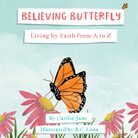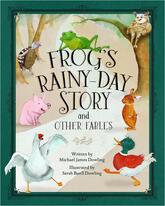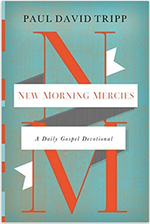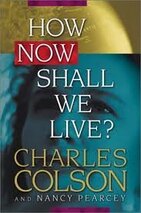 By Dr. Roger Erdvig, WCS Headmaster Every now and then I like to use this space to suggest resources for Biblical worldview development, and since we’re coming up to the Christmas season, I thought now would be a great time to do so again. (Click on the images for a link to buy the book.) First, a brand-new book, Believing Butterfly, by Caitlin Jane (WCS class of 2005). An accomplished musician and singer, this is Caitlin’s first picture book--a beautifully and whimsically illustrated “A, B, C” book for young children. Each page features a letter of the alphabet along with an animal and a Scripture verse that corresponds to a Biblical character quality or principle.  It used to be that young students in the United States would actually learn to read by memorizing letters and words that were associated with Biblical truths. From the very first words children could recognize, they were immersed in God’s view of the world. Caitlin’s book can help parents immerse a new generation of little ones in God’s word and take a strong step forward in developing in them a Biblical worldview. Next is a book for children who are a bit older. Similar in nature to Aesop’s Fables, Frog’s Rainy-Day Story and Other Fables by Michael James Dowling teaches important life lessons through humorous short stories. In the introduction to the book, Dowling rightly asserts that just as fish are unaware of the water in which they swim, we are many times unaware of influence of the ideas in which we “swim.” Our culture is awash with ideas that many times work against the development of a Biblical worldview. Frog’s Rainy Day Story contains a series of nine fables, each of which capture the attention of readers of any age. They’re written for a young elementary student, but who doesn’t love a fun story. While I love each of the well-crafted tales, I think my favorite aspect of the book is what comes at the end of each story. Dowling offers a few quotes from contemporary thinkers—what he calls “Wisdom from the Word.” Then, he contrasts those ideas with “Wisdom of the Word.” Readers can see clearly how a Biblical worldview offers right answers to our moral dilemmas and character growth opportunities. Illustrated by his wife Sarah, the pictures are a joy to look at, again and again.  It seems wherever I see bookshelves in Christian families’ homes, I see my next recommended resource, New Morning Mercies: A Daily Gospel Devotional, by Paul David Tripp. One of today’s foremost pastor/teachers, Tripp’s heart and writing style pull readers into the truths he offers. Tripp developed this devotional from his habit of tweeting three gospel thoughts each morning. His goal was to use social media to “confront and comfort people with the life-rattling truths of the gospel of Jesus Christ.” Eventually, people began asking him to expand on the truths he posted. New Morning Mercies is his answer to that request. Each day’s reading is opened with a gospel truth, followed by a readable and clear exposition of that truth—ideal for both teens and adults. April 25th’s truth is “Today you will spend solitary moments of conversation with yourself, either listing complaints or counting your blessings.” Tripp doesn’t treat this reality in a syrupy, self-help sort of way. Instead, he reminds us that we “live in a fallen world where people and things are not functioning the way God intended.” This is an important worldview truth, but it shouldn’t lead us to complain or gripe. He goes on to say that “The joy or complaint of your heart always shapes your willingness to trust God and to do his will.” For someone who desires to develop their Biblical worldview, these are great truths to start (or end!) the day.  Finally, a classic that has sold over 350,000 copies. How Now Shall We Live by Chuck Colson and Nancy Pearcy is a watershed book in Christian history. Published in 1999, it helped an entire generation of believers think in worldview terms. Colson and Pearcy took what was largely the domain of Christian philosophers and academics and made it accessible to everyday Christians. Part of the genius of How Now Shall We Live is that it is framed by an overarching story—that of a family experiencing Disney World and coming to terms with the worldview messages so clearly being promoted throughout the parks. Though the family is fictitious, the events are based on real accounts of how teens and parents can experience conflict surrounding some of the most important truths—where we as humans have come from, what’s wrong with the world, and how it can be fixed. The book is divided into four parts which correspond to the four “chapters” in the history (and future) of God’s interactions with humankind: creation, fall, redemption, and restoration. At 487 pages it is a long read, but it is well worth the effort. Truths punctuated by compelling stories keep this work from becoming a dry, dusty tome. Even better—its writing style is ideally suited to audio-book format for listening on long commutes or miles on the treadmill. Ralph Waldo Emerson is credited with saying, “I cannot remember the books I’ve read any more than the meals I have eaten; even so, they have made me.” Comments are closed.
|
Cultivating godly influencersWilmington Christian School provides a distinctively Christian, innovative education that effectively develops Godly influencers who are well prepared for life after high school and who impact the culture for Christ. Archives
May 2024
Categories
All
|
|
Wilmington Christian School provides a distinctively Christian, innovative education that effectively develops Godly influencers who are well prepared for life after high school and who impact the culture for Christ.
Wilmington Christian School admits students of any race, color, national and ethnic origin to all the rights, privileges, programs, and activities generally accorded or made available to students at the school. It does not discriminate on the basis of race, color, national and ethnic origin in administration of its educational policies, admissions policies, scholarship and loan programs, and athletic and other school-administered programs. |
|
|
© Copyright Wilmington Christian School. All Rights Reserved.
Website designed by PROSPER Creative Design
Website designed by PROSPER Creative Design


